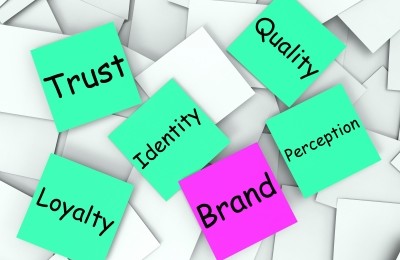Importance of Personal Branding in Your Job Search
By Career Transition Coach Andrea Abernethy
In this highly competitive job market, a well written resumé is just one tool necessary to market ourselves into a great new job. As important is the development of a personal brand.
What’s that? Think about Coke, Kellogg’s Cereals, American Express or any successful company. All these brands convey a message that helps to define them. And that’s what you need to become memorable and perhaps more importantly, to stand out among the other candidates for that job you’re chasing.
A personal brand can develop from our own mission statement. It can serve as a tagline that tells the interviewer or employer what makes us different, why we are special and desirable, and why we are the best choice over other applicants with similar backgrounds and experience. Just like Coke conveys an energy pick-up and Kellogg’s says cereal, so our brand must convey who we are and how we benefit a prospective employer.
Now use your brand to market yourself.
When developing our personal brand we should be thinking about what we want to achieve in a new job and think about what companies and positions we will be targeting. In our marketing story we should also be communicating our values and strengths and our short and long term goals. We should include words that characterize our personalities and are memorable to the employer. Communicate what makes us stand out and what sets us apart from the other applicants being interviewed for the same position.
Our brand should also include information about our skills, abilities, education, and professional experiences. Our passion and personality should show through in our statement. The personal brand may also include adjectives or descriptions of how we are perceived by friends and acquaintances and how coworkers would describe us.
So how about an example? “Early in my public relations career, I created a brand for myself (unknowingly then) based on my ability to tell stories through the news media and to build positive relationships with the press,” explains Ed Weirauch, one of our Barton Career Transition Coaches. “Without realizing it at that time, I had created a brand for myself: the media guy or the press pitcher.”
When working as a Career Coach at Barton Career Advisors we ask our coaching clients to work on developing their story or three minute “mission statement”. The client can practice and perfect their Personal Brand with us before going to the interview so they feel more confident and well versed in their unique selling proposition to “wow” the employer into looking no further for qualified applicants. The client will sell themselves so the employer will decide that the most desirable and valuable applicant is sitting right in front of them.
For many people, personal brands and selling yourself can be a foreign concept or even one that makes us uncomfortable… “me, a sell-out?” That’s not quite our point. In this post-recession economy, you MUST be able to sell (as in ‘market’ or ‘put out there’) yourself so you’ll get the job you want. And key to this is your ability to develop your brand.
So complete this analogy: Coke is refreshing as Kellogg’s is a good breakfast as I am…
Finish that thought and you’ll have your personal brand.
Image courtesy of FreeDigitalPhotos.net
Self-Reflection and Personal Growth in your Career Search
by Andrea Abernethy, Career Transition Coach
Self-Reflection has been a daily part of my life since my college years when I started taking education classes, and continued when I began teaching. Every college professor pounded into our heads the importance of honest self-reflection after stepping out of our classrooms every day. They encouraged us as educators to ask ourselves what worked in the classroom and what didn’t. As a result, I have been in the habit of self-reflecting for many years and I consistently think about how I can make improvements in every aspect of my life.
In searching for the perfect career for ourselves, reflection can be used to help us become aware of things that are really holding us back and then enable or inspire us to come up with some possible solutions to achieve our goals. We should be thinking about what in our lives makes us happy and what we would like to change. In our career search we should take the time to ask ourselves:
- What have I been satisfied with in previous positions?
- What new things would I like to explore in my career?
- What kind of job would I enjoy going to every day?
- How can I find a good work life balance?
One of the “positive” things about beginning a new job is that it offers you a “fresh” start in life. Many people make excuses for not taking the time to reflect, saying they are too busy going from one activity to the next, have too much work to do, etc. You need to set aside time in your schedule for reflection, especially if you are in job transition. This can be easy… reflect while you are driving in the car, taking a shower, walking by yourself, before you go to bed, etc. …. Make the time!
After answering some of these important questions about ourselves and our job search we should look at our answers and self-discoveries. Consider this personal insight and set goals for yourself as you focus on finding a career or profession that may make it possible to achieve your goals.
As Career Transition Coaches with Barton Career Advisors, we begin our coaching process with three assessments, which give our clients the tools to ask the questions needed to help them reflect on; their career goals, discovering what type of culture they are most happy working in, what jobs and careers are best suited for their personality types, and more. After completing the assessments, we coach our job seekers one-on-one, thoroughly going over the results of the assessments together. Some people may need that little “push” or help from the insights that the assessments provide to stay focused and find their “A Ha! moment” in learning what is most important to them in their job and in life.
If you aren’t in the habit of daily reflection I hope after reading this you will understand the importance of making the time and effort to explore this practice to help you find a job that suits you. This quote from writer (Locked and Loaded) and book blogger Nenia Campbell sums it up for me and I hope it will resonate with you as well:
“We’re so concerned with the idea of what we ought to be that we fail to take into account the things that make us who we really are.”
What to do with the Dreaded “Salary Requirements” Question
by Mary Schaefer, Career Transition Coach
One of my clients recently asked me how to handle an interviewer who is asking about salary requirements early in the screening process. She was worried her response would put her out of the running before she even got a chance to make a good impression.
We all know why hiring managers and interviewers do this. They certainly don’t want to devote time to a candidate who is going to expect more than they can possibly offer. At the same time, it can be a bit presumptuous to expect that salary is the only form of compensation a job candidate is willing to consider.
So what do you do, as a job candidate, when asked this question early in the process? I polled my fellow coaches and got some great responses.
Be cagey: Coach Ed Weirauch suggests being a bit circumspect – maybe ask questions first. For instance, say: “Do you have a range in mind?” If you like what you hear, you can respond, “That’s something I can work with.” If the range or figure is lower than your target, try this, “As I learn about your expectations of this position and the responsibilities described, I would think something higher would be reasonable.” Ed’s perspective is that your salary goal and the interviewer’s range ideally should be within $10,000 of each other. If they aren’t, you may need to keep looking.
Another way is to answer the question with a question: Coach Greg Moore suggested asking about the budget for the position, then base your response on what you hear. At the same time, we all realize that interviewers have been through many versions of this discussion. Greg reminded me that sometimes candidates are asked about salary history. You can respond that you can offer your history, and at the same time acknowledge that there are so many factors that go into considering acceptance of a job, your history may not be particularly relevant in this situation.
Fall back on the tried and true: Coach Andrea Abernethy referred me to the latest version of the book, “What Color is Your Parachute?” a job seeker’s reference that has been around since 1970 and gets updated regularly. “Parachute” suggests three potential tactics: If the interviewer seems sincere and practical, you might respond to a premature salary question by saying something like, “Let’s hold off on that part of the discussion until you’ve decided you want me and I’ve decided I would be a fit.” If the interviewer asks the question really early, and won’t take no for an answer, you can try: “I will be glad to answer that question. Can we first discuss a little more about what the position involves?” If the interviewer is insistent, offer a range. This can sound like: “I’m looking for something in the range of $35,000 to $45,000.
Think of your job search and job landing process as a bit of a dance: The entire process from applying to signing on the dotted line takes information, practice and finesse. For instance, with this example of fielding the salary question, practice your response to an array of scenarios. Ideally you would do this with a professional, like a career advisor, who can help you from start to finish with things like mining your accomplishments to create an impressive resume to networking to mock interviews.
Final advice: Don’t sell yourself short. Ask for the help you need, and deserve.




